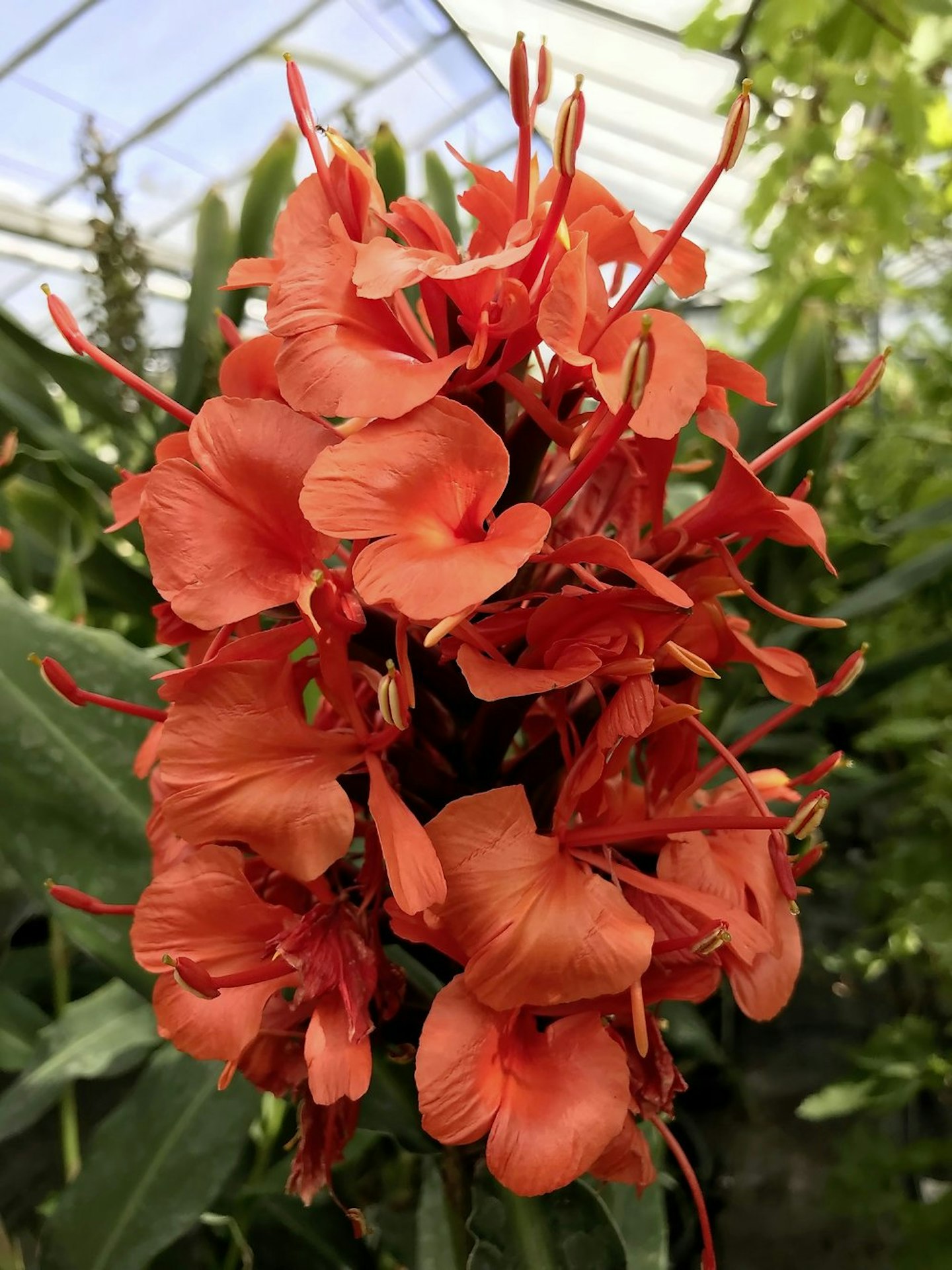A passion for tropical plants led Plant Health Inspector Andrew Gaunt to growing butterfly ginger lilies or hedychium. Initially training and working in agriculture, 20 years ago Andrew had the chance to become a consultant for the Ministry of Agriculture, Fisheries and Food (MAFF, now Defra), eventually joining the Plant Health & Seeds Inspectorate, helping to protect the country against the slew of bugs and beasties currently threatening us.
“It was around this time I started to grow tropical plants, such as bananas and cannas in my garden, but then one day while inspecting a local nursery selling citrus plants I came across a butterfly ginger in full flower. The owner gave me a piece and I was hooked,” said Andrew. Fifteen years later his collection has swelled to 48 species, and over 190 varieties, from around the world and was awarded the status of National Plant Collection by conservation charity Plant Heritage 12 years ago.

The most startling species in Andrew’s collection is H. ‘Rubrum’, now named as H. deceptum
“For the most part gingers are easy to grow,” said Andrew. They need plenty of water and high-potash feed in summer, but hate being waterlogged in winter.” While growing most in pots, he also grows hardier ones outside, covering their rhizomes with a mulch of bark chips once the frost has cut back the top growth.
“Propagating them is also easy,” said Andrew. “Some species such as Hedychium forrestii set seed, which germinates easily in spring if harvested fresh and carefully stored. It doesn’t need chilling, and viability is soon lost if seed is stored for longer,” To successfully propagate ginger lilies, sever a bit of rootstock from an actively growing plant; they easily rot if severed when dormant and it also takes time to establish them from dried rhizomes.”
Although he finds H. forrestii the most adaptable species, Andrew finds it’s not the best for flower, instead recommending varieties ‘Tara’, H. densiflorum ‘Stephen’ and H. yunnanensis for general garden use.
How you can be a plant hero
You can help preserve unusual plants in your garden! The Plant Heritage charity works to conserve the nation’s garden plants through the National Plant Collection Scheme and Individual Plant Guardians, and is looking for Garden news readers to get involved with its crucial work.
Contact collections@plantheritage.org.uk for more information or visit www.plantheritage.org.uk.

